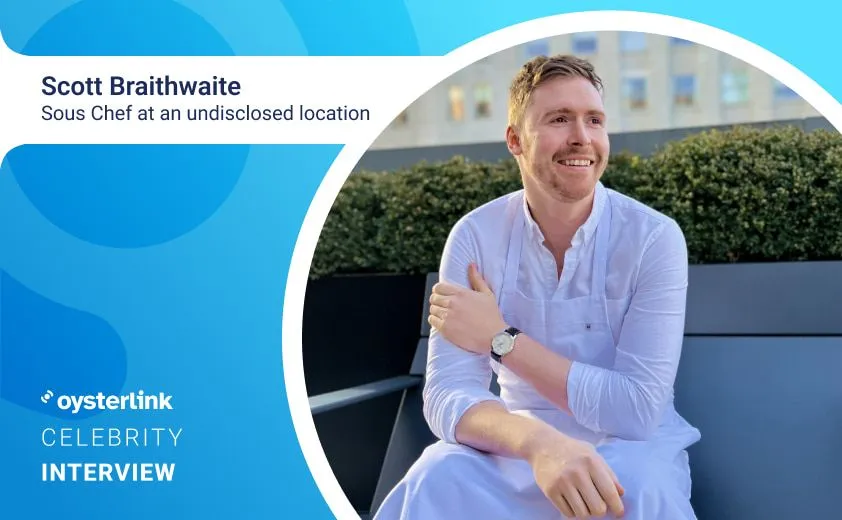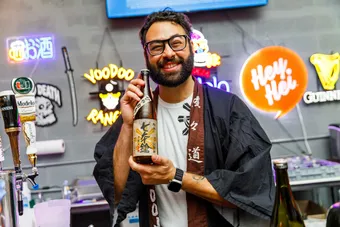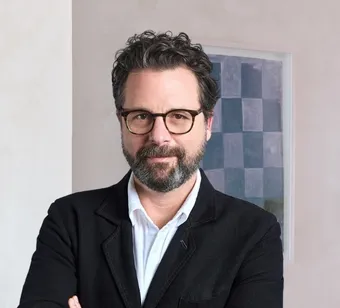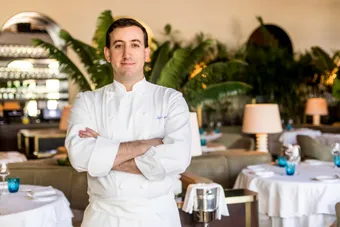A culinary career is demanding. It's not just about the long hours and pressure; it's the entire journey to becoming a chef. Research shows it can take anywhere from several years to a whole decade to land a chef position.
With a suitcase full of dreams and a heart set on food, Scott Braithwaite started his culinary journey several years ago. Leaving his homeland behind, this young and ambitious Sous Chef has already honed his skills in kitchens across the globe. Today, we had the opportunity to chat with Scott and discover how his travels have shaped his approach to cooking.
What inspired you to pursue a career in the culinary world?
Chef Braithwaite: Food's always been a love of mine, and even though it wasn't the career path I had in mind at first, well, let me tell you, once I got my foot in the door of this industry, I was hooked!
It's the perfect outlet for the creativity and professionalism I was always looking for.
You have the freedom to create dishes and taste the finest ingredients, and – of course – this industry gives you the knowledge and the passport to travel the world.
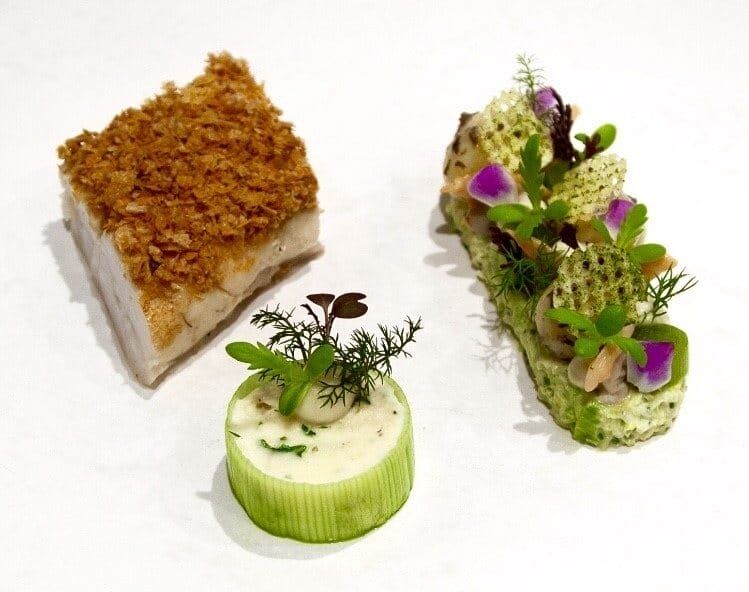
How important is exposure to different cuisines for a young chef?
Chef Braithwaite: I think it's super important. Exposure to different countries' cuisines and ingredients opens your eyes to stuff you might never have even thought of before, you know? From the spices of Southeast Asia to the incredible seafood in Scandinavia, every trip leaves me with a newfound respect and love for different cultures and how they use food.
Do you have any advice on how to get the first job as a chef?
Chef Braithwaite: Location is everything. I love what I do, but I also want to work somewhere I enjoy spending my free time too. This way, your search narrows down to a handful of restaurants. Then, you can choose the perfect one to grow as a chef.
Don't just settle for any job. Find a place where you can invest your time to learn.
Try to find a restaurant that will invest in you and help you develop your skills.
What are the essential skills and qualities that aspiring chefs should focus on developing?
Chef Braithwaite: Sure, the basics like cooking, professionalism, and time management are non-negotiable, but that's not all.
I think it's crucial to invest time in learning where your ingredients come from, how they're grown, and digging into seasonal changes.
You know, with everything shipped all over the world these days, it's easy to forget that stuff.
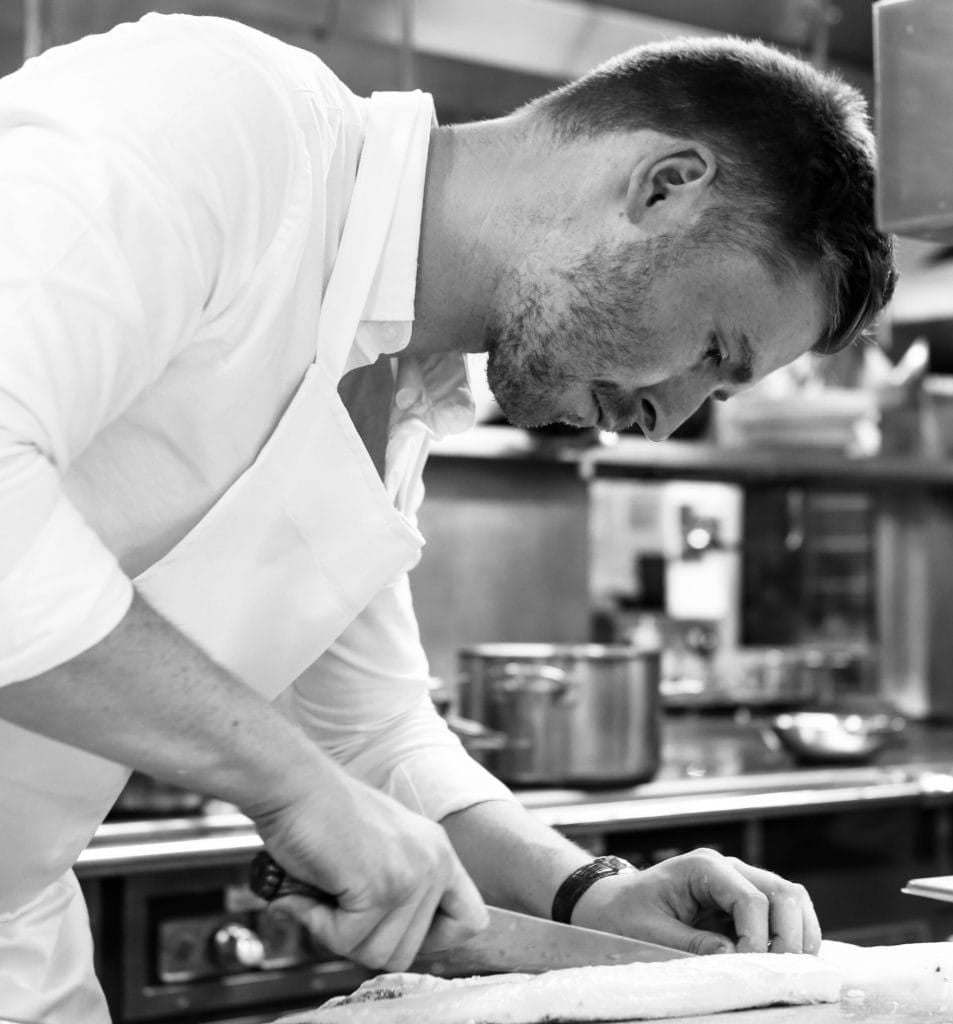
How do you handle the pressure and stress that come with working in a fast-paced kitchen environment?
Chef Braithwaite: Maintaining a clear and composed demeanor is crucial, but an open mind that welcomes change is equally important. In the dynamic environment of a kitchen, the inability to adapt can be a significant challenge. However, everyone approaches their work differently. For me, I've always embraced the ebbs and flows of the kitchen. Even during stressful situations, I remind myself that these moments often become amusing anecdotes later on, just like many other kitchen experiences.
Can you share your thoughts on the importance of networking & mentorship?
Chef Braithwaite: It has never been easier to connect and network with other professionals in the field. Social media has made it easy to follow along with chefs around the world. It gives us the ability to learn more and even contact the chefs. This could be an excellent opportunity to ask if you could stage with them.
What would you suggest as the best method to find a mentor?
Chef Braithwaite: Finding a chef whose mission or cause aligns with yours can make the job way more rewarding than just punching the clock. If you're serious about this path, consider doing a stage with them for a few days. It's a small investment of time compared to potentially spending three or more years at a restaurant you might not click with. You owe it to yourself to do your due diligence!
What is your favorite and least favorite thing about your job?
Chef Braithwaite: The ability to exercise creative freedom with food is a constant source of inspiration for me. Transforming an idea or brief into a visually captivating dish is rewarding. I must confess that chefs with inflated egos and domineering attitudes are not something I find appealing in the workplace. I believe a collaborative and respectful environment fosters the best results for everyone involved.
What final piece of advice would you give to job seekers in the restaurant industry?
Chef Braithwaite: Give it your all as early as possible, and you will reap the rewards further down the line. Investing in yourself with Stages or cookbooks is a great way to better your knowledge.
Commit to the right restaurant for a couple of years and progress as much as you can in the restaurant until you can’t progress anymore.
Bouncing around from one place to the other after a year is not going to help you in the long run.
So, you've gotten a taste of what it takes to thrive in a culinary career. If you want to become a Sous Chef, the Sous Chef career guide is a good starting point. With our resources and your preparation, you'll be ready to land that dream job.
About Eleven Madison Park
Eleven Madison Park, a fine dining haven in NYC, offers a fully plant-based tasting menu overlooking Madison Square Park. Led by Chef Daniel Humm, the restaurant boasts a modern take on luxury dining with innovative vegetarian cuisine.
